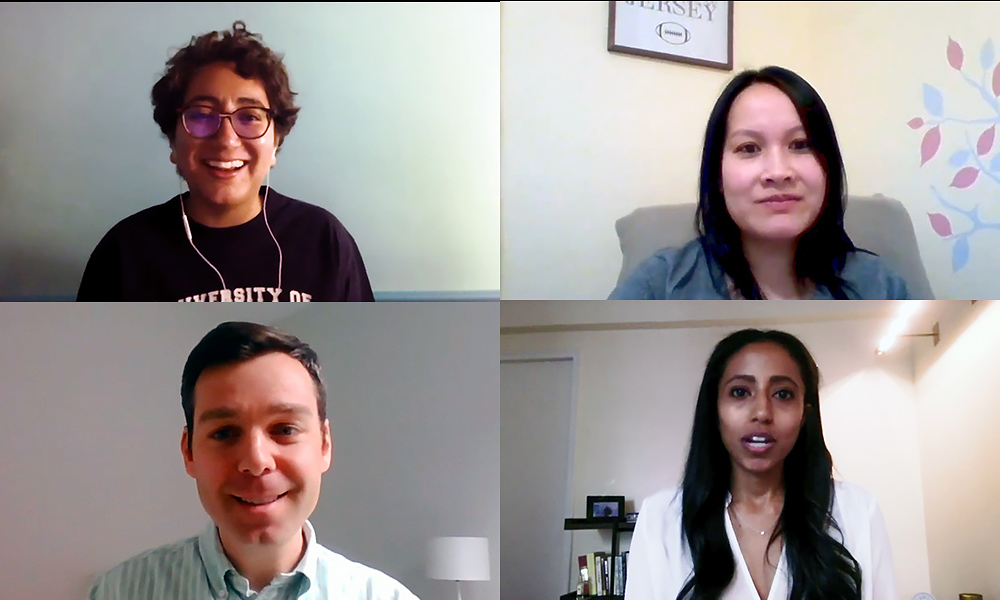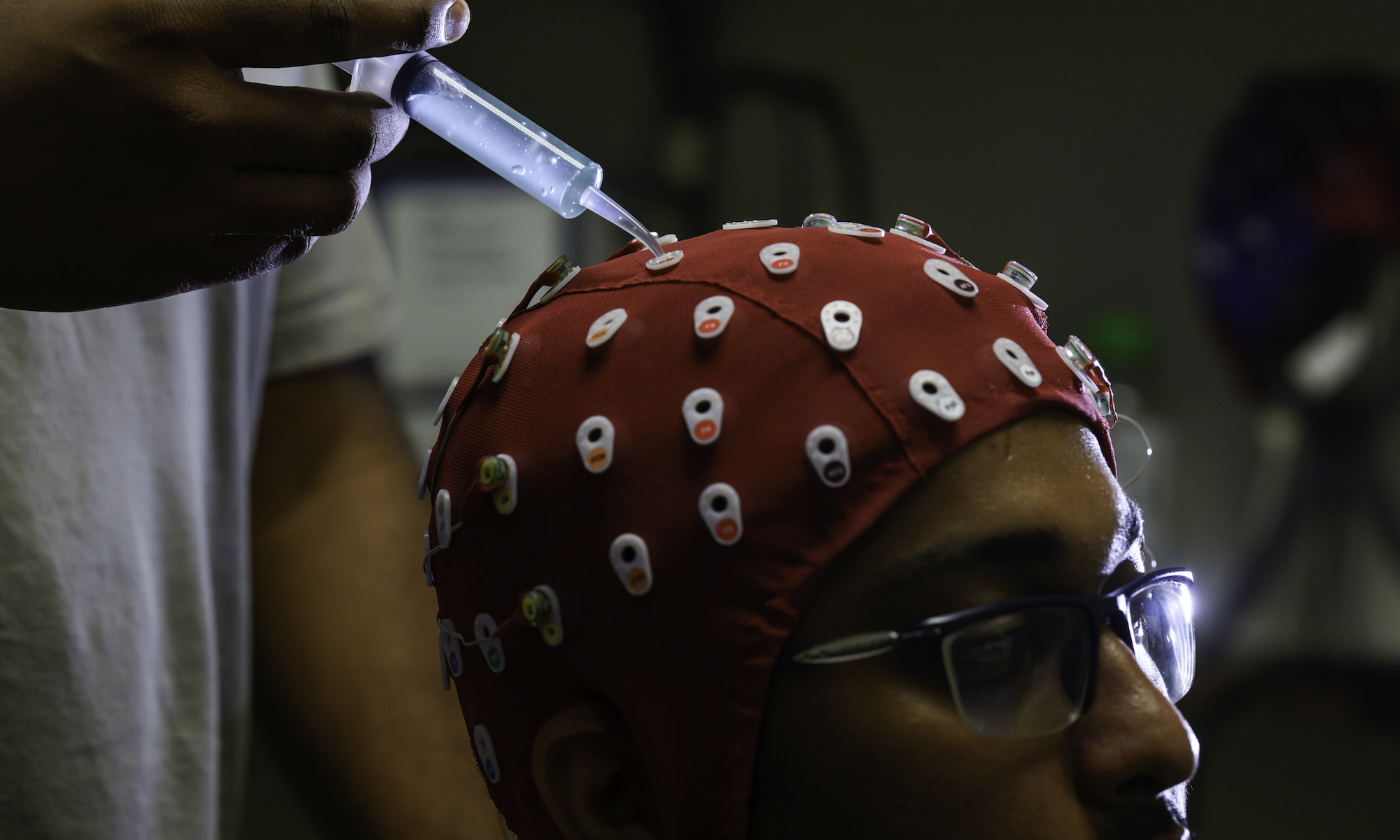The events of the past six months have caused many people to adjust how they approached aspects their lives: care for their families, work, social justice and inequity, education and schooling, and health care, to name a few.
The pandemic also has disrupted how many college students explore careers, seek out internships, apply to graduate schools or fellowships, and look for jobs.
Joe Testani, assistant dean and executive director of the Gwen M. Greene Center for Career Education and Connections at the University of Rochester, offers five tips for students as they navigate the next several months.
Ask Joe Testani Anything
Joe Testani, assistant dean and executive director of the Gwen M. Greene Center for Career Education and Connections, is hosting monthly AMA (Ask Me Anything) webinars about internships, jobs, graduate school, and the future of work. Here’s the schedule:
1. Relationships matter more than ever
The relationships students forge at Rochester have always been important to their college experience, course work, student life, social networks, and career education and planning. This year is no different, and the relationships students develop will be critical as competition in certain industry sectors and professions may be higher because of a reduction of positions or a shrinking of business lines. They will also be important as people may be grappling with the effects of what is happening societally and the emotional, psychological, and intellectual toll that can take on an individual—and how to balance that with planning for a first career destination after graduating.
The main difference in developing relationships or networks this year is that much of it will be done virtually. It will be crucial for students to practice how best to have conversations via virtual formats. Most people will be in this situation, but it can be harder to develop a connection for some students so the more comfortable they become, the better off they will be. Practicing with friends, family, and advisors will be helpful.
2. Pivot and adapt to new opportunities
Some students may have had ideas of what they were going to do after graduation, but the circumstances during a pandemic has thrown some doubt on those plans. An industry sector or job may have been significantly affected by COVID-19. Ideas of what to do have changed based on the experience of 2020. So, the question to reflect upon is “how can you pivot and think critically about how your skills and knowledge gained at Rochester can be applied to different opportunities?”
We are helping students think about their stories and how they can talk about their experiences and apply it to a wider array, more diverse, or just different opportunities. This has been trending within future of work discussions—the ability to adapt and learn new concepts quickly—and it will be what more and more jobs and organizations will need. The future just arrived a little more quickly that many anticipated.
3. Patience + persistence
Patience and persistence will be key this year. Some hiring organizations may not know their needs, or their needs will be continuously evolving, as they adapt to what is happening in communities and cities around the US and internationally. Creating and developing alternative plans will mitigate some of this, and many students will continue to persevere for the goals they have set for themselves.
Staying aware and current the news that’s trending in industries you’re interested in, following up with people, asking clarifying questions for timelines, connecting with a variety of people at a company or organization will be necessary in a time when recruiters and human resources reps may not know how or when opportunities may open up based on business needs. Your community will be helpful—not only to manage the process, but also to keep you grounded and balanced.
4. Keep learning and adding to your portfolio of skills and competencies
With potentially greater competition in certain sectors, it’s important to be aware of key skills and competencies that may be in high demand. If you have them already, keep finding ways to showcase them and provide examples of your development. Additionally, as more organizations become better at offering virtual or remote internships or jobs, they will expect students to talk about how well they can operate in that environment.
How will you build relationships with team members virtually? How will you be accountable to get work done? How can you ensure teamwork and collaboration can happen regularly? Do you have experience in that? What are examples you can provide from classes, research, campus organizations, projects, internships, etc. There are also many resources at the Greene Center and in industry professional circles that allow for students to continue to add to their body of knowledge or skills (Coursera, Udemy, Kaggle, Tableau) or ideas that can be sourced by talking with Rochester alumni.
Some students may also “pitch” virtual or remote internships, projects, or jobs to organizations—some of whom think that it would not be possible because of the type of work they do or they just don’t know how to coordinate such a thing. If a student provides ways to do that and shows the value of that type of experience to the business, product, or services of that organization, they may be able to create a great opportunity for themselves.
5. Empathy: For yourself and others
The last several months have had different effects on people, and we don’t always know how when we connect with someone. Many have had their share of challenges, difficulties, obstacles, and barriers that people are not always aware of or that you may feel comfortable sharing. Treating others kindly and just being aware that the recent events could have affected people in ways that have disrupted their lives will allow you to start or engage in a conversation from a place of empathy. Besides being a great approach to relationships in general, it will send a message that you have a respect and concern about others as you go about your search for the next opportunity.
You also need to give yourself grace as you navigate the near future. Find time to take care of yourself, your family and friends, and find some space to recharge in order to give energy to your career planning. There are people at the University of Rochester to help you—faculty, friends, staff, classmates, Greene Center advisors. Reach out when you need it.
Read more
 Greene Center helps students retain summer internships
Greene Center helps students retain summer internshipsDespite the pandemic, the Greene Center helps connects students with opportunities to pursue life and career interests.

Graduating students: Lean on University community
The Greene Center urges graduating seniors to call on the University of Rochester community for ideas and help.

Finding a job during a recession? We’ve been there
Alumni who survived the Great Recession of 2008–09 offer advice to the Class of 2020 as they face an economy that’s playing havoc with job opportunities.




